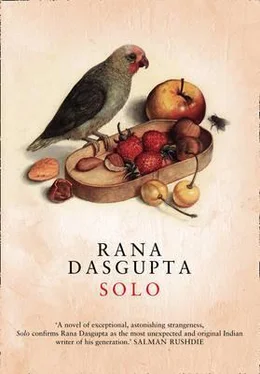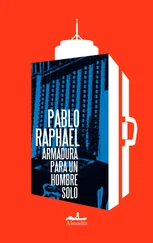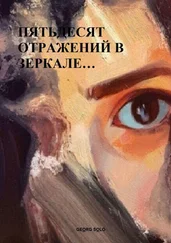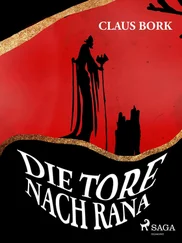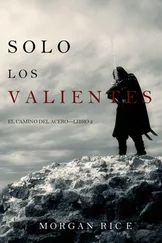A few months were enough to clear the place finally of everyone else, and Boris grew up with his grandmother in the empty town. They cultivated pumpkins and turnips together, and beans and herbs.
Boris looked after the pigs himself, for he enjoyed their company. The sows were tender and knowing, and it was a quiet rapture to share their pregnancy with them every season. He slaughtered the young boars when they reached a year; he cured the meat, and made shoes from the skin. He used the fat for candles and soap.
Stoyana turned quiet. She thought about the dead: for according to the custom, obituaries were put up in the bus shelter on the anniversary of every death; and with the town empty, she assumed this responsibility for all its deceased. In the mornings she wrote out a little account of some departed life or other, and pinned it up — even though there were no longer any buses, or people to wait for them, and her tributes went unseen by human eyes.
She continued to love Boris as before, but her speech had turned inward, and when their work was finished at the end of the day, they sat together on the earth, saying nothing, and looking up into the hills.
Boris roamed through the strange museum that his town had become. He went into all the houses, and searched through their contents with no sense of trespass, for the lives had been withdrawn that once gave these things their secret pique, and now they lay flagrant and matter-of-fact. He went through drawers of old coins and certificates. He read diaries and letters with innocent curiosity, intrigued, merely, by the variety of life. He lay on the double beds of the town’s absent couples to see what they had seen as they awoke in the mornings.
The old bookshop became his library, and even as the years curled the pages of its volumes and condemned their facts and opinions to obsolescence, he continued to return there, seeking hopeful pleasures in books he had previously rejected.
Buildings crumbled and grew wind-prone. Trees and animals made their own adaptations to houses. Two trains had stopped in the railway station: they were loaded with steel barrels stencilled with skulls and crossbones, which crumbled over the years, and grew over with moss.
Boris became a young man. He masturbated in overgrown gardens or rusting bathtubs looking at pages ripped from histories of art, and medical textbooks.
He did not abandon his music.
The chemical factory became his studio. The bare walls and steel reflection gave his instrument a broad sound, and every day he took his violin there to try new improvisations. In the early days he played cassettes in there, too, listening for inspiration as he lay on the concrete floor looking up at the ranks of pipes — but after some time the town ran out of batteries and surrendered all music except his own. So Boris made his own tunes and styles, angling his mind askew to the world as his Gypsy master had taught him.
For year after year, he sat in the factory, playing music. On the vast concrete floor there were smudges where Boris cleared out his ambit in the dust — and in the gloom his violin bow flashed like a sewing machine, gradually stitching his youth.
3
IN TBILISI, THE PICTURESQUE CAPITAL of the Georgian Soviet Socialist Republic, it is a cloudless evening near the end of May 1981. Dignitaries are assembled in the banquet hall of the Hotel Iveria, talking light and smoking heavy, collecting in corners in twos and threes, abandoning wives who whisper together and adjust hair. Out of the windows, the Mtkvari river flows towards the sunset, cars circulate idly, ordinary people sit on balconies in the last warmth: and generally the world is lowly, and insensitive to the momentousness of the night. For Leonid Brezhnev is in Tbilisi, and behind these closed doors there is to be a parade of political tenterhooks.
The table is decked with place names as big as licence plates, but no one sits yet, for the guest of honour is not here. And since the room is heavily populated by local party members, the time is given over to mutterings of ill-controlled glee that have little to do with matters of state: for Tbilisi’s victory in the UEFA Cup Winners’ Cup is not two weeks old and the memory of those two winning goals sits recent even in party minds. Dinamo Tbilisi is still the chant around town, and Gutsaev and Daraselia are national heroes.
There are those who stand at the window above Rustaveli Avenue watching for the limousines of the Moscow contingent, and now they signal the arrival. Ties are straightened and expressions banished. The room holds its pose for an awkward length of time, for the old man is sick and his ascent arduous to this lofty room. At last he arrives, in a party of five, accompanied by the First Secretary of the Georgian Communist Party, Eduard Shevardnadze. He delivers a half-smile to the assembled guests and takes his seat.
Four waiters pour wine. There is a very long silence, embellished only by the trickle of Georgia’s finest vintage and the inattentive shuffle of the chief guest, who is looking under the table for a place to comfortably rest his feet.
When all the guests are served, First Secretary Shevardnadze raises his glass and offers a toast. All stand.
‘The Georgian Communist Party is honoured to welcome you, Commander Brezhnev, and all the members of Central Committee. We lay before you all the hospitality our country can offer. Raise your glasses to Commander Brezhnev and to the glorious Communist Party of the Soviet Union!’
The General Secretary drinks falteringly from his glass. He offers some words in response, which fail to rise. ‘Invitation’ is there, and ‘productive’. He is heard to say ‘sporting success’; and there is applause from the Georgian nomenklatura.
The waiters begin to bring food. There is every kind of roasted meat, cold chicken and ham, pork shashlik , baked aubergines, garlic potatoes, khajapuri , breads, cheeses, plates of dill and parsley, pickled vegetables, khinkali — and now plates are piled upon plates and others are coming and already there is not one patch of tablecloth visible through the feast that has been stacked up. People begin to eat loudly and with gusto. Toasts are drunk to Georgia and to Comrade Shevardnadze, and wine is flowing freely. The blandness of party members becomes more ardent. After all, Brezhnev is a man assailed by crisis and every grey suit conceals a human chest throbbing with questions. What will happen ? They bring up Poland — in entirely proper tones, of course — how is the threat being addressed, whether it will be possible to retain the country as a member of the Warsaw (yes) Pact … Other conversations give way to the actual question:
‘We would be honoured to hear, Commander Brezhnev, your learned opinion as to the glorious future of socialism.’
Brezhnev is tired and sick, and his eyes are full of water. He murmurs a prearranged instruction to a young man to his left, and sucks some wine to clear the dill from his teeth. The young man stands, earnestly impersonal and impeccably suited, with a smile like an American president’s. His eyes are grey like the northern sky.
‘We have been demanding for several months that the authorities in Poland declare martial law in order to stamp out the counterrevolutionary menace. We have lost much time. The government has been too lenient towards Solidarity, and now has a serious situation on its hands. The lengthy legal procedures for introducing martial law are finally being completed, and I believe that the tide will now turn. But damage has been done among all our neighbours, and we must learn from these events. The Polish people have had too much contact with the West, and from it they have learned the evils of self-interest. It is a salutary lesson for us all.’
Читать дальше
Конец ознакомительного отрывка
Купить книгу
